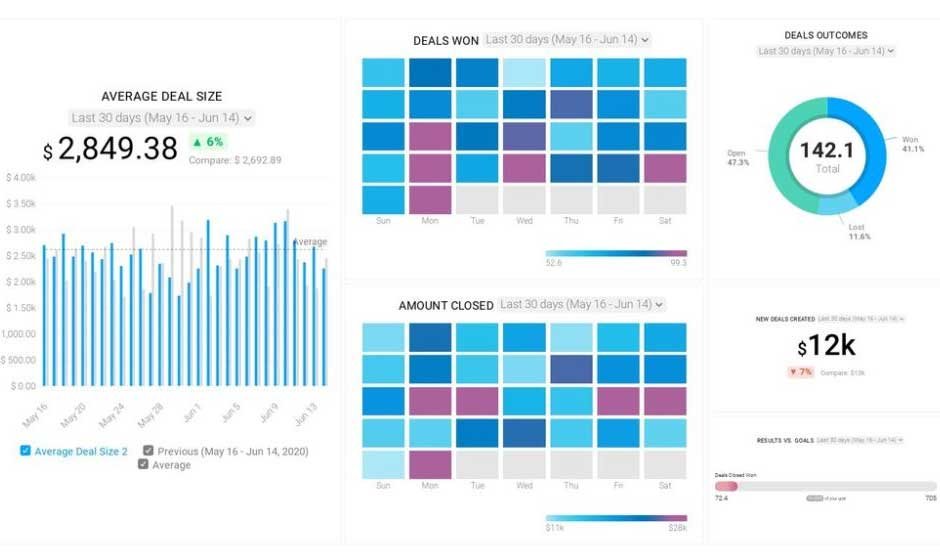Sales teams thrive on performance, and an efficient incentive structure is crucial for driving motivation and results. However, tracking and analyzing sales performance can be challenging without the right tools. This is where sales commission software plays a pivotal role. By automating calculations and providing real-time insights, it enables businesses to optimize their sales compensation strategies effectively. But what exactly should you track? Below are the key metrics that sales commission software helps monitor for better performance insights.
1. Total Sales Revenue Generated
Revenue is the ultimate indicator of sales success. Sales commission software allows businesses to track total revenue generated by individual sales reps, teams, or regions. Understanding revenue trends helps businesses align their sales strategy with market conditions and identify top performers.
2. Commission Payout Accuracy
Errors in commission calculations can lead to frustration among sales reps and loss of trust. Sales commission software ensures accurate and timely commission payouts, reducing disputes and administrative hassles. Tracking payout accuracy helps businesses evaluate their commission structure’s effectiveness and maintain transparency.
3. Sales Quota Attainment
Quota attainment is a critical metric that measures whether sales reps are meeting or exceeding their assigned targets. Sales commission software provides a clear view of each rep’s progress, enabling managers to identify who needs additional coaching or incentives to boost performance.
4. Deal Size and Average Transaction Value (ATV)
Tracking the size of deals closed by sales reps helps businesses analyze selling patterns. Sales commission software highlights trends in deal sizes, helping organizations adjust their pricing strategies or incentives to encourage larger transactions.
5. Conversion Rates
A sales rep’s ability to convert leads into actual sales is a key performance indicator. Sales commission software tracks conversion rates at different stages of the sales funnel, providing insights into which reps are excelling and where improvements are needed.
6. Sales Cycle Length
The length of the sales cycle varies based on the industry and product complexity. Sales commission software helps businesses monitor the average time taken to close deals, allowing them to streamline sales processes and optimize commission structures for faster deal closures.
7. Product Performance and Mix
Not all products contribute equally to revenue. Sales commission software helps track which products are selling the most and which ones need additional push. Businesses can use this data to tailor their commission plans, ensuring that incentives are aligned with strategic product priorities.
8. Territory Performance
For companies with geographically distributed sales teams, monitoring territory performance is essential. Sales commission software provides region-wise sales data, helping businesses identify high-performing areas and regions that need more attention or resources.
9. Sales Team Performance by Role
Different roles within a sales team contribute uniquely to revenue generation. Sales commission software enables businesses to track performance metrics specific to account executives, sales managers, and business development representatives, ensuring fair compensation and optimized team performance.
10. Customer Retention and Repeat Sales
While acquiring new customers is vital, retaining existing customers is equally crucial. Sales commission software helps measure customer retention rates and repeat purchases, offering insights into the long-term value of each sales rep’s efforts.
11. Commission Cost as a Percentage of Revenue
Understanding how much commission is paid relative to total revenue is critical for financial planning. Sales commission software calculates this metric automatically, helping businesses maintain a balance between rewarding sales teams and ensuring profitability.
12. Performance Benchmarks and Trends
Tracking historical sales performance allows businesses to set realistic benchmarks and measure improvements over time. Sales commission software provides comparative analytics, helping organizations make data-driven decisions and refine their incentive plans.
13. Incentive Effectiveness
Not all incentives drive the same level of motivation. By analyzing incentive effectiveness, sales commission software helps businesses understand which commission structures work best in driving sales and which need adjustments.
14. Real-Time Commission Tracking
Sales reps perform better when they have visibility into their earnings. Sales commission software provides real-time dashboards, allowing sales professionals to track their commission earnings instantly and stay motivated.
15. Clawbacks and Adjustments
In some industries, sales commissions may be subject to clawbacks due to cancellations or refunds. Sales commission software tracks such adjustments, ensuring accurate and fair compensation.
Conclusion
Tracking the right metrics is essential for optimizing sales performance and maintaining a motivated sales team. Sales commission software empowers businesses by automating data collection, improving accuracy, and providing actionable insights into sales compensation. By monitoring these key metrics, companies can refine their commission structures, boost sales effectiveness, and ensure long-term success.
For businesses looking to take their incentive management to the next level, Incentivate offers a powerful, automated solution tailored to your needs. With real-time tracking, customizable dashboards, and seamless integrations, Incentivate ensures that your sales commission strategy aligns perfectly with your business goals.










